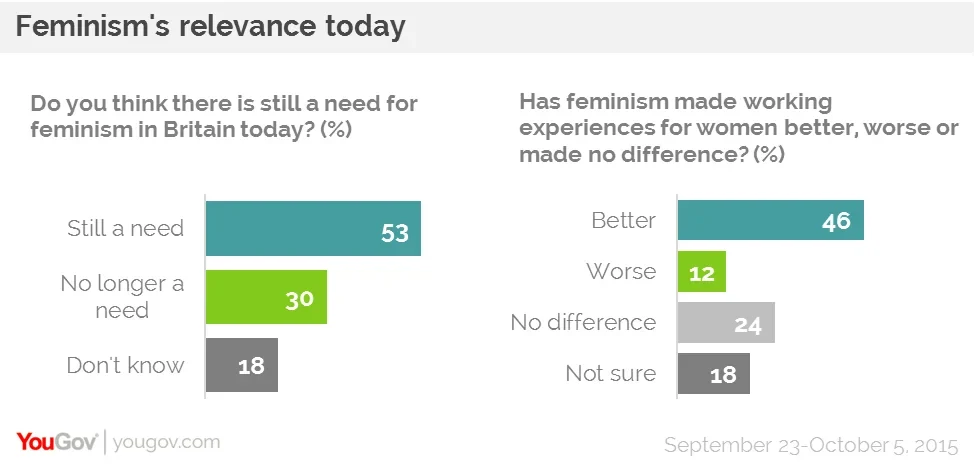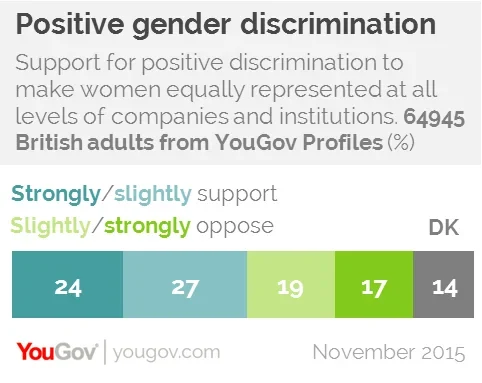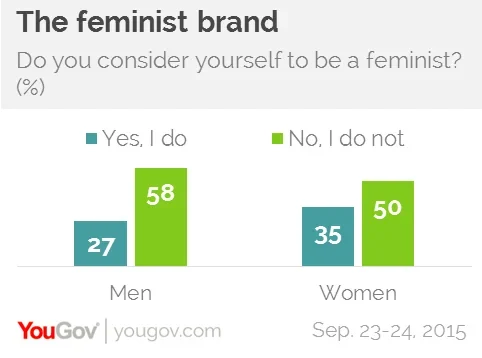The majority of people in Britain say there is still a need for feminism in Britain and that women are at a disadvantage to men – but even women tend not to identify as 'feminists'
The average woman in Britain will in effect now work for free until the end of the year due to men earning 14.2% more than women per hour, according to equality campaigners using data from the Office for National Statistics. Equal Pay Day marks the day each year when the average women would have earned their total yearly wage if they were paid the same hourly rate as the average man. This year the day falls five days later than last year, however campaigners warn that at the current pace it would take 54 years for pay to reach parity. From 1997-2005 the pay gap shrunk by 0.5% per year, however between 2005-2014 it has only fallen by 0.1% per year.
New YouGov research reveals that British people are aware of endemic female disadvantage and see feminism as having relevance today, but are wary of the term itself.
Most people (53%) say there is still a need for feminism in Britain today, and the most popular view on the historic success of feminism is that it has made the experience of work better for women (46% say this compared to 24% who say it has made no real difference).

54% of British people also say that women are at a disadvantage in the workplace, and get fewer promotions than male colleagues.

Furthermore, YouGov Profiles data reveals that the majority of people (51%, compared to 36% who oppose) are in favour of positive discrimination at a broad level – ‘to make sure women are equally represented across all levels of companies and institutions’. And in other recent polling, we’ve found a tendency to support new laws being brought in to help raise the balance of men and women on the boards of FTSE companies to 50/50 (44% support and 28% oppose).

‘Feminism’ itself, however, is not popular in Britain. Most people (54%) do not consider themselves to be a feminist. 31% identify with the term overall, but this only rises to 35% for women – half (50%) of all women would not call themselves a feminist. And people are more likely to consider calling someone a feminist an insult (19%) than a compliment (15%).
Recent campaigns with hashtags like #EqualPayDay, Emma Watson’s UN speech and even getting politicians to wear feminist tee shirts are high profile efforts to change the negative connotations of the word 'feminist' for a new generation. And it seems to be paying off – more young people (44%) now say they would call themselves a feminist than say they would not (41%).
PA image








